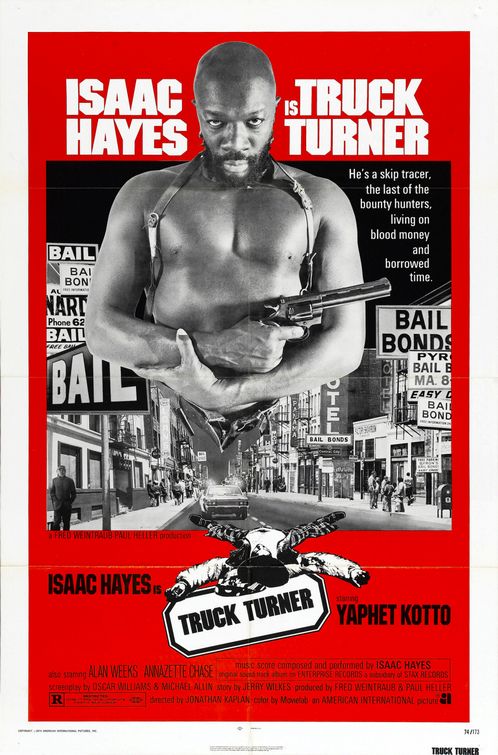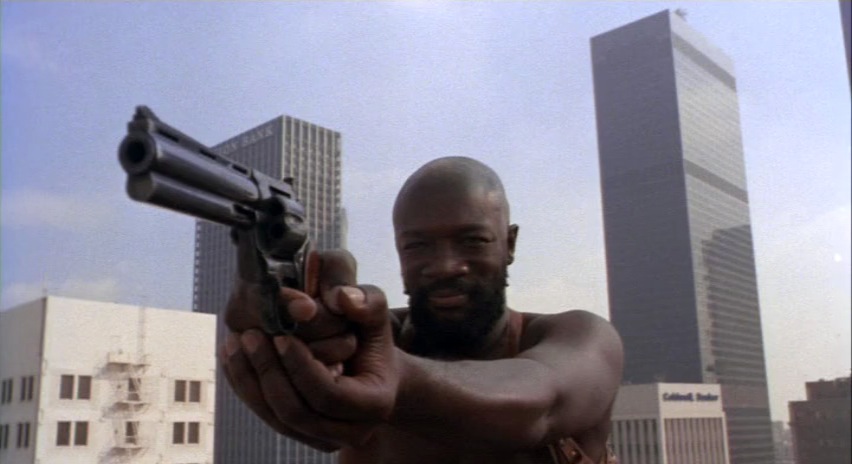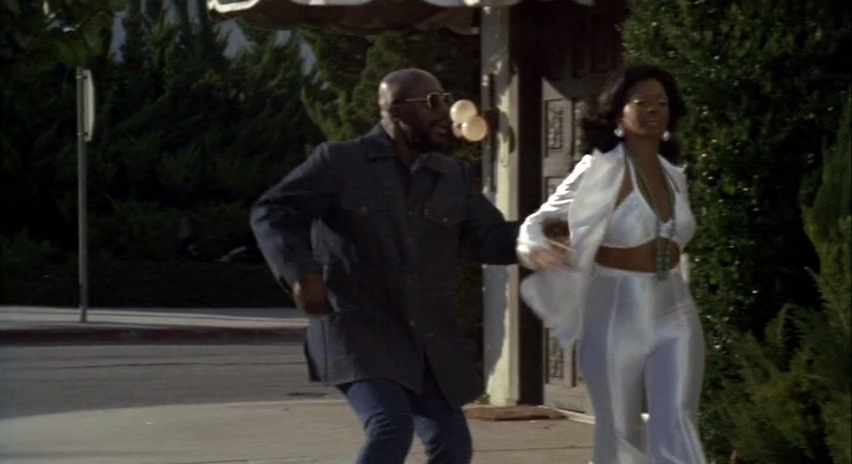The Soul of the 70s: Part One "Pimps, Hos and Cat Pee"
 Tuesday, July 31, 2012 at 6:00AM
Tuesday, July 31, 2012 at 6:00AM When it comes to 70s action exploitation, always bet on black!
Truck Turner
(1974)
Synopsis
Mac “Truck” Turner (Isaac Hayes) is a former pro-football player who is just barely making ends meet as a bounty hunter with his partner, Jerry (Alan Weeks). Together they agree to take on the generous bounty for a dangerous pimp named Gator (Paul Harris), who ends up getting killed trying to getaway from them. Gator’s best girl, Dorinda (Nichelle Nichols), takes over his operation and posts a bounty of her own on Truck’s head, offering 50% of her profits to any pimp willing to put him in a body bag. Her call is answered by Harvard Blue (Yaphet Kotto), who assembles a crew of assassins he calls “The Insurance Company” to take down Truck. They manage to kill Jerry, but Truck won’t go down as easily, especially now that they’ve made him mad.
Pertinent Details:
Soundtrack: Composed by Hayes, who had previously won the Oscar for Best Song for his classic “Theme From Shaft”. It’s available on iTunes in a double disc package with the soundtrack from the same year’s Tough Guys. It features tracks entitled “Buns O’Plenty”, “Pursuit of the Pimpmobile” and “Hospital Shootout”.
Trekkie Trivia: This was not only the first and last Blaxpoitation appearance of Nichols, but was the only feature she appeared in during the decade between Star Trek’s cancellation in 1969 and the release of Star Trek: The Motion Picture in 1979.
Eurotrash connection: The part of Stalingrad, the blond hooker with Gator just before he dies, is played by Werewolf Woman's Annik Borel.
Corman Connection: This AIP feature was directed by Jonathan Kaplan, who got his start directing Night Call Nurses (1972) and The Student Teachers (1973) for Corman. Today he remains best known as the director of the Oscar-winning Jodie Foster rape drama The Accused (1988).
The tone of Truck Turner is established right from the beginning, when we see its title character get up and get dressed in the morning. Truck realizes that his pet cat has peed on his only clean shirt and is forced to decide whether that deems it unwearable or not. In the next scene, he’s driving in his car, wearing the cat-pee shirt. Clearly, Truck is not the ultra-smooth John Shaft, Isaac Hayes won an Oscar singing about. He’s a slob, he’s broke, and his girlfriend, Anne (Annazette Chase), is just getting out of a stint in prison for shoplifting. But rather than alienate us, it actually makes him a much more sympathetic protagonist. It helps that he’s portrayed as being good at his job—his name means something on the streets—he’s just not that good at life.
This plays out in the movie in many hilarious ways. Late picking up Anne after she’s released from prison, he treats her to a “special” dinner of Kentucky Fried Chicken. Later on, when he realizes she’s in danger from the assassins hired to kill him, he frames her for shoplifting, knowing she’ll be safer back in lockup. None of this is smooth or heroic. Truck is never as cool as you’d expect a Blaxploitation hero to be, but that actually makes his acts of violence that much more intense—his sudden competence in this area stands out compared to everything else we’ve seen.
Truck’s vulnerability is also reflected in the other characters, both heroic and villainous. Though the pimps and hookers never transcend their status as 70s cartoons, Dorinda’s fury seems justified and gives her character a slightly tragic quality she might not have otherwise had. Kotto’s Harvard Blue is just a greedy, evil bastard, but he’s still given the glory of one of the better drawn out death scenes I’ve ever seen.
For a film this light-hearted, the violence is often shocking and brutal. The result is a tension that feels completely of the time and reminds us why these films remain so much fun to watch today. Sadly, what makes it all work is probably the same thing that kept us from getting a Truck Turner Returns or more films with Hayes in a leading role. Audiences at the time wanted their black action heroes to be supermen akin to James Bond or Bruce Lee, not a character who could have just as easily been played by Elliot Gould (who pretty much did just that in Robert Altman’s The Long Goodbye).
Bad Mother—shut your mouth! rating: 10 out of 10
 A.I.P.,
A.I.P.,  Isaac Hayes,
Isaac Hayes,  Nichelle Nichols,
Nichelle Nichols,  Truck Turner in
Truck Turner in  70s action,
70s action,  Blaxploitation
Blaxploitation 



